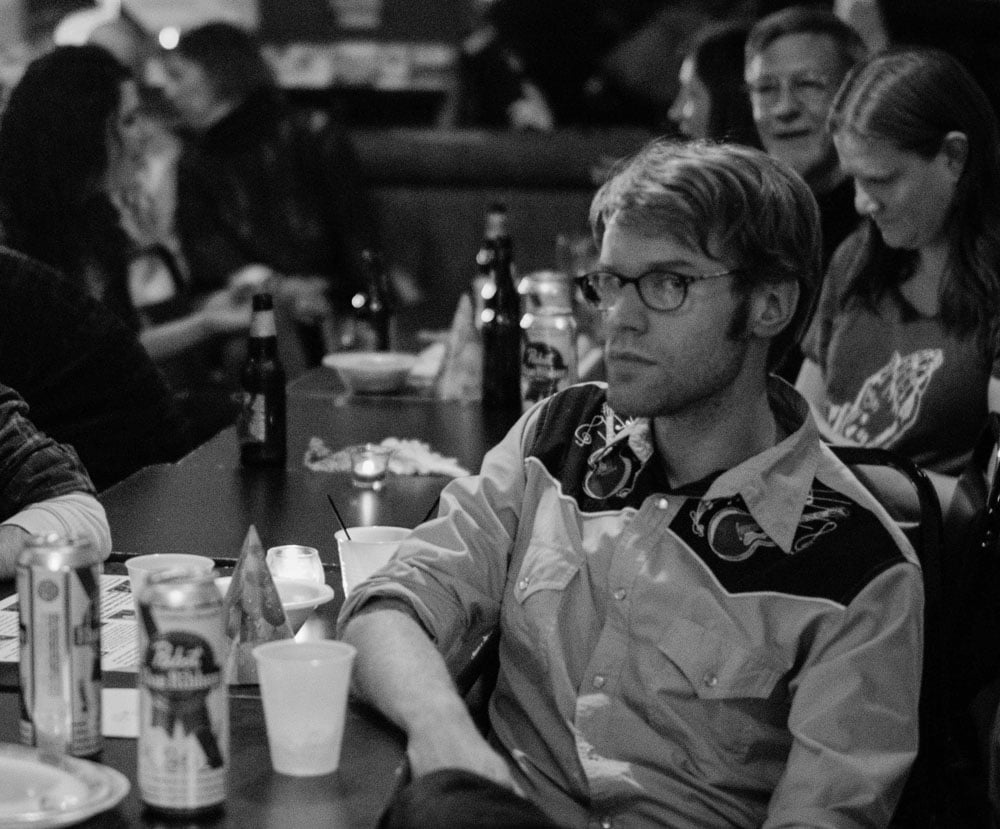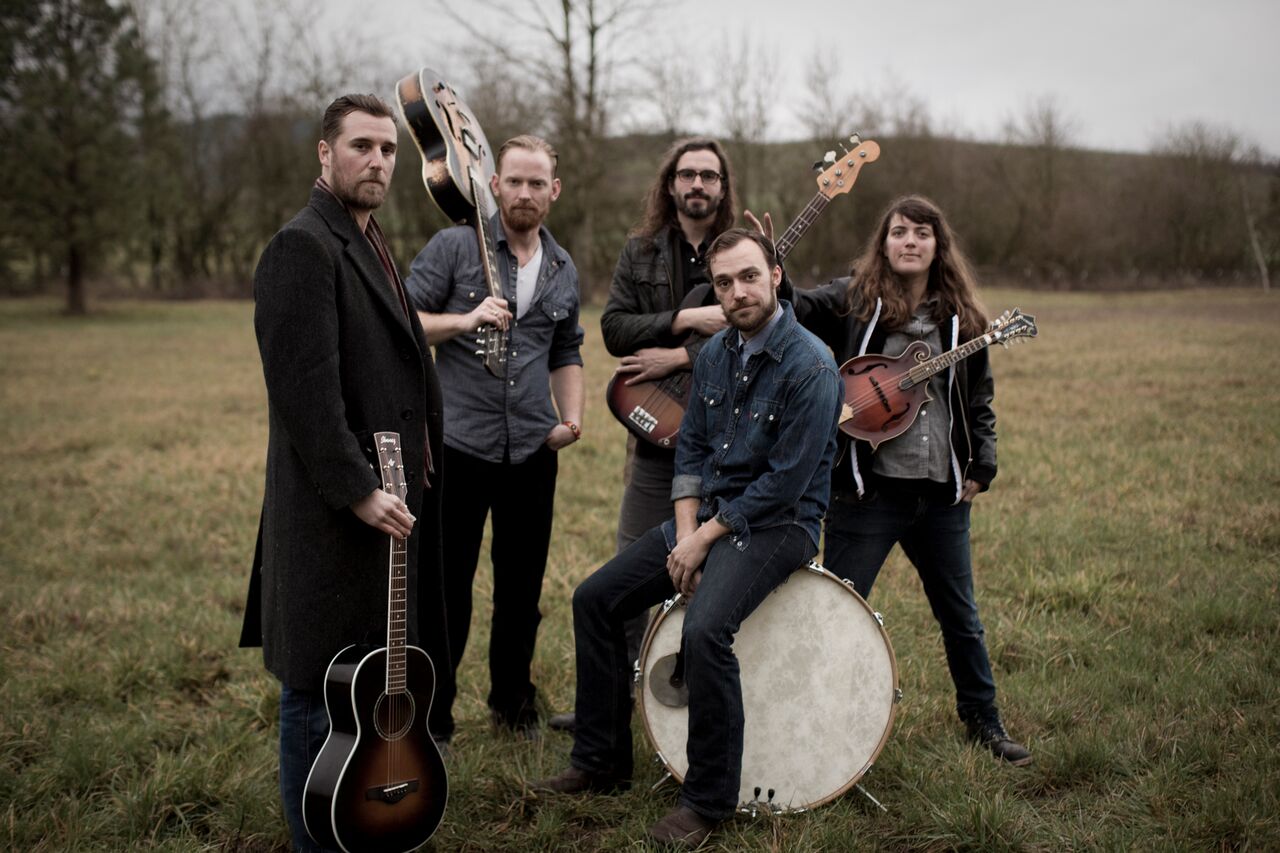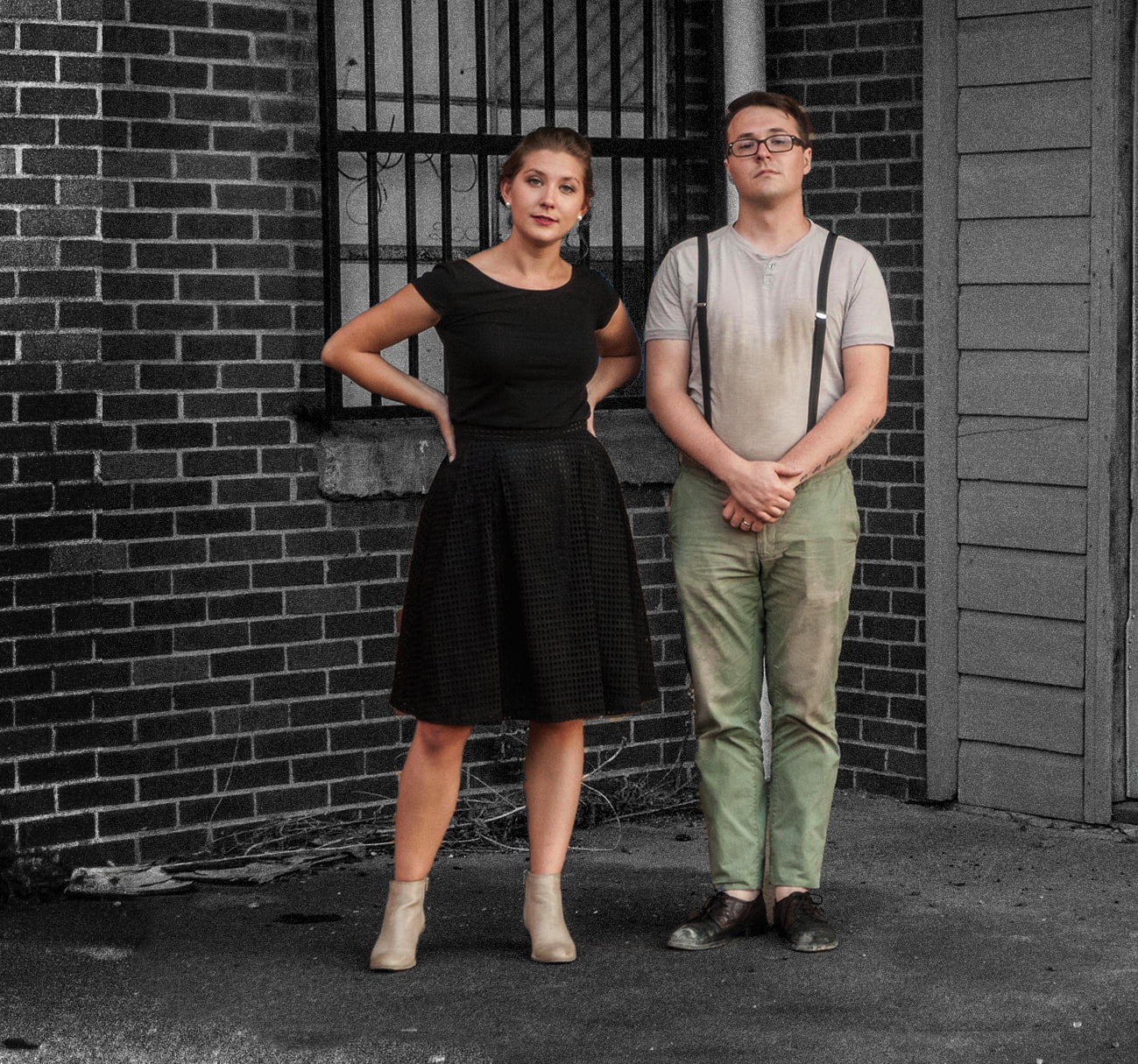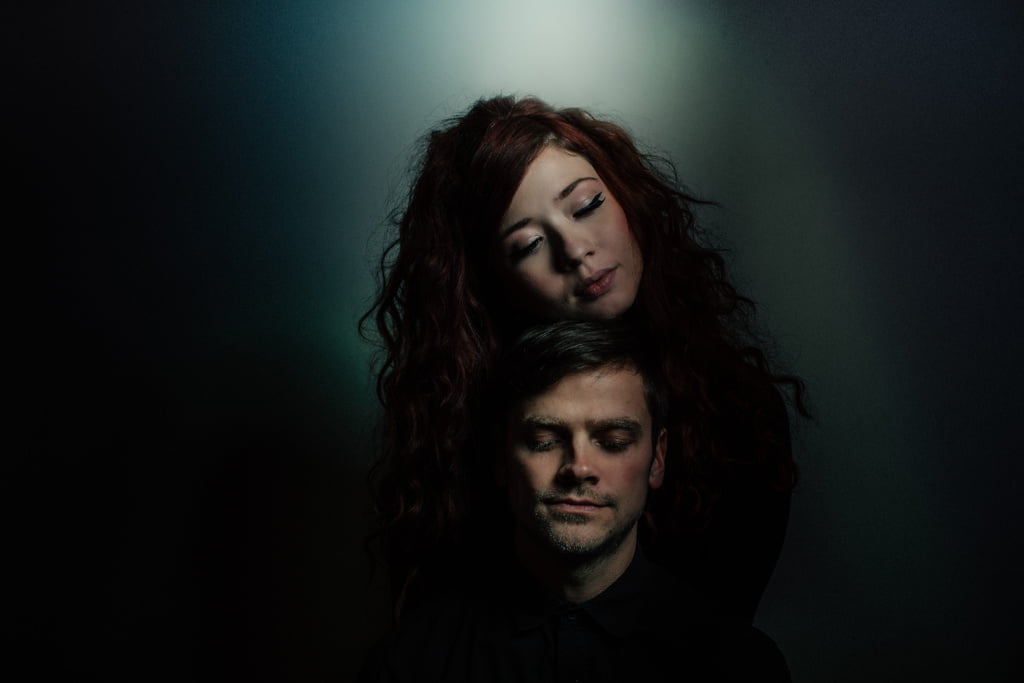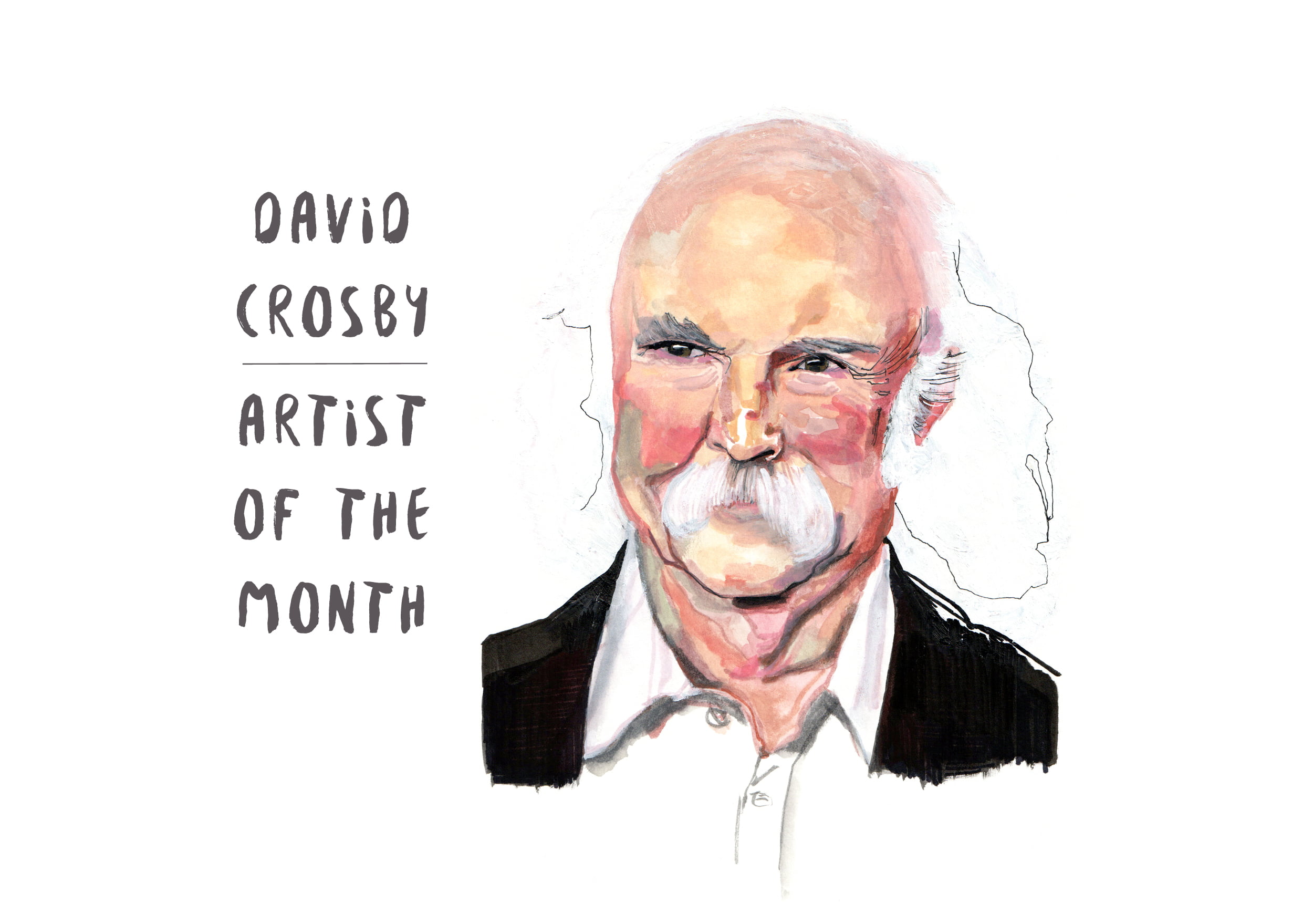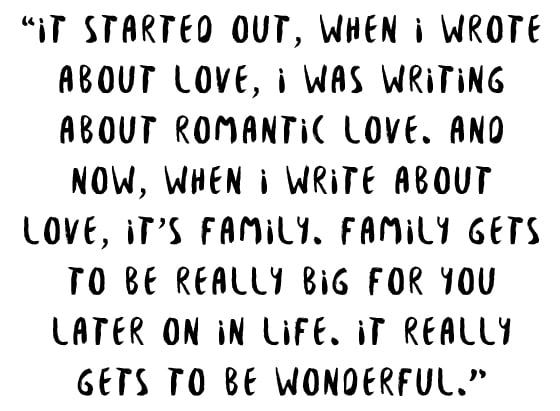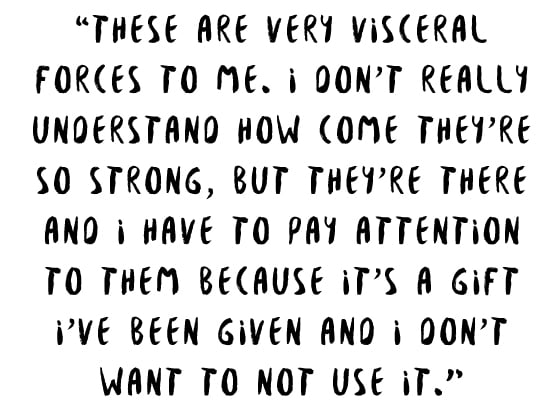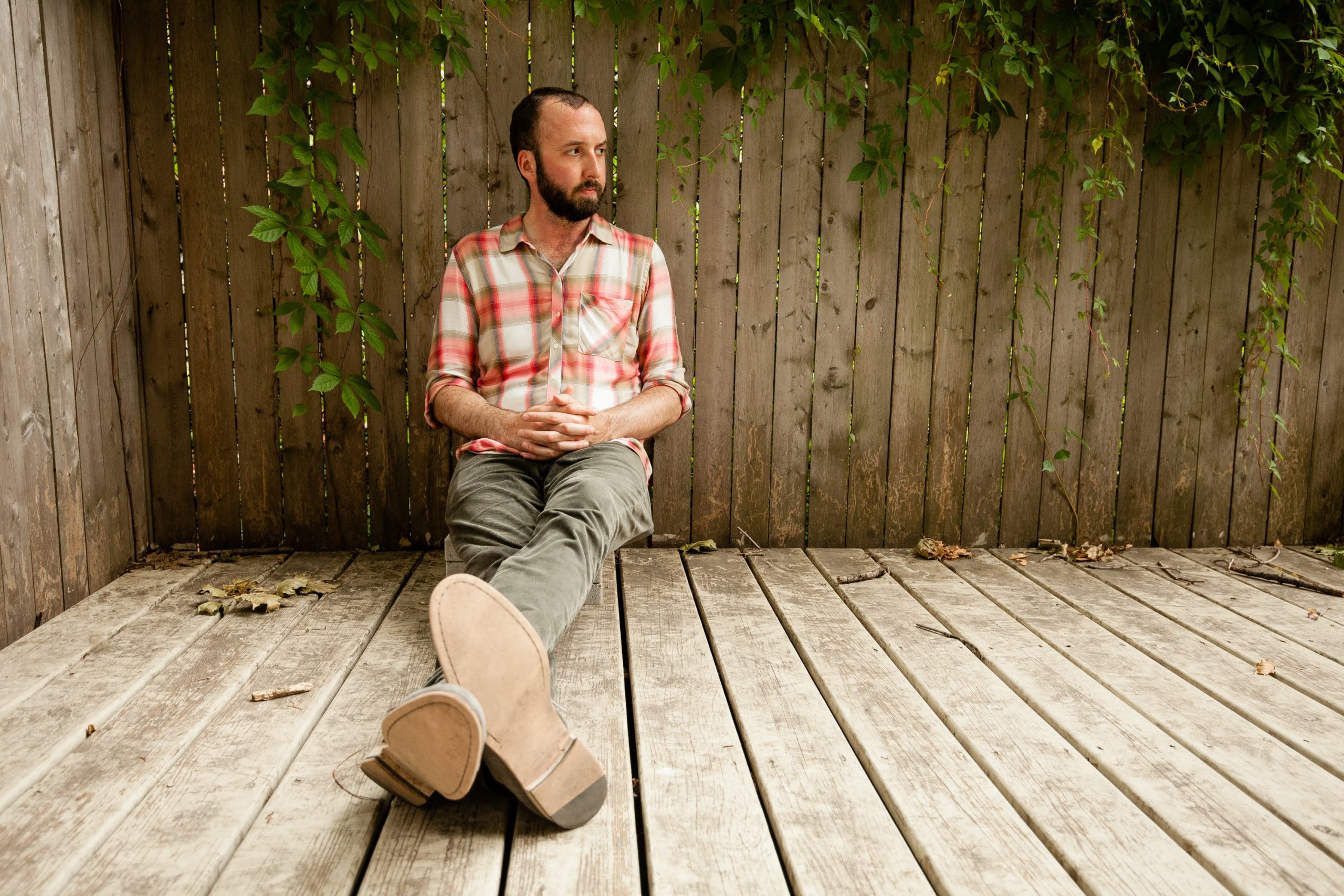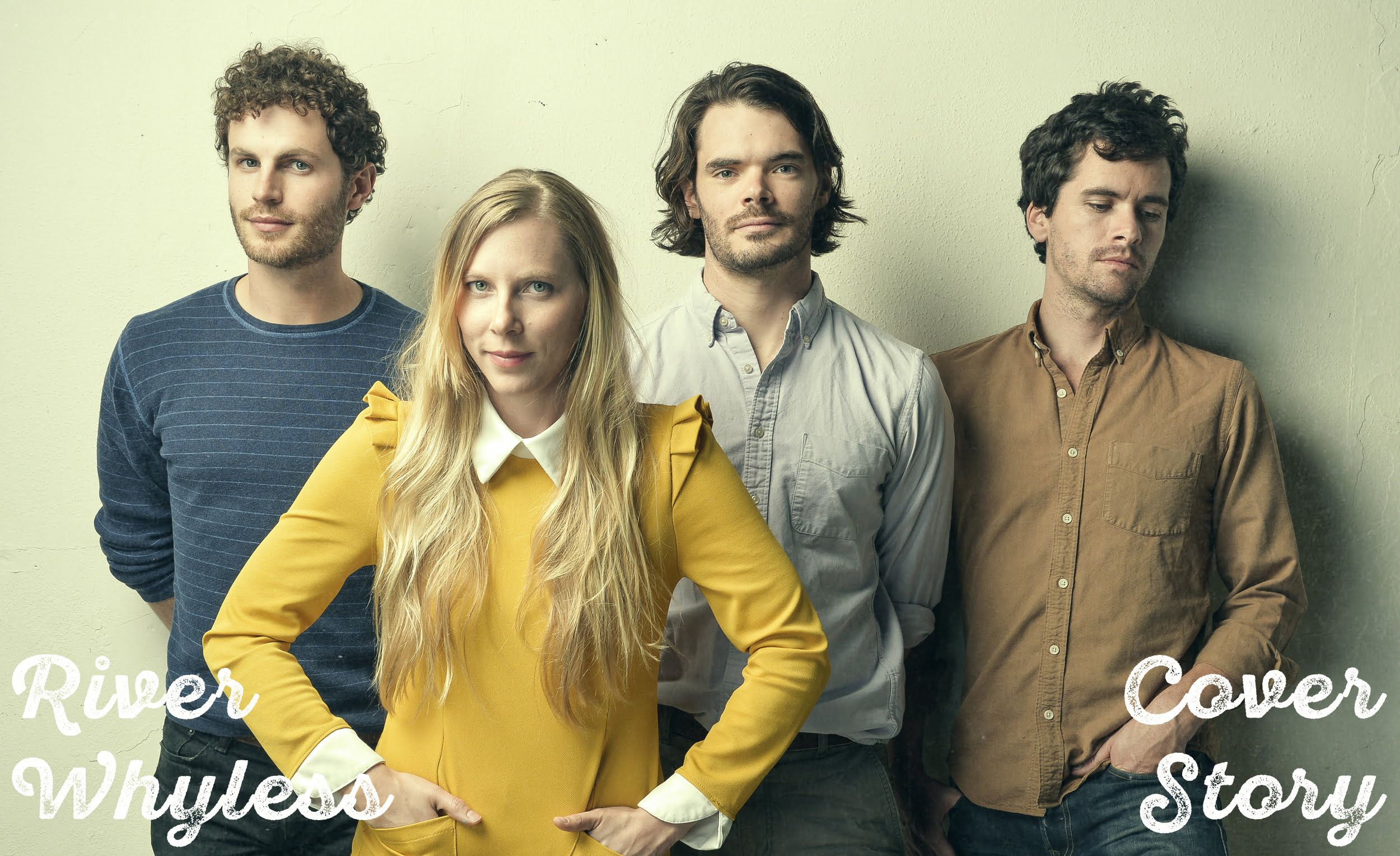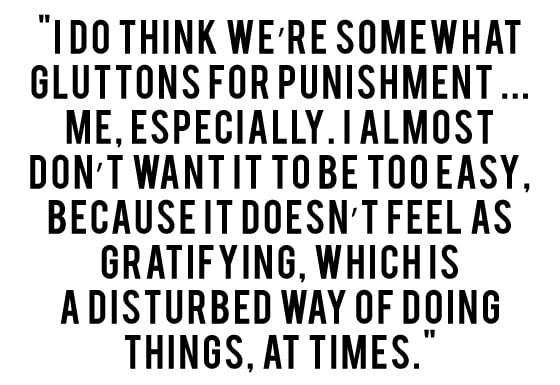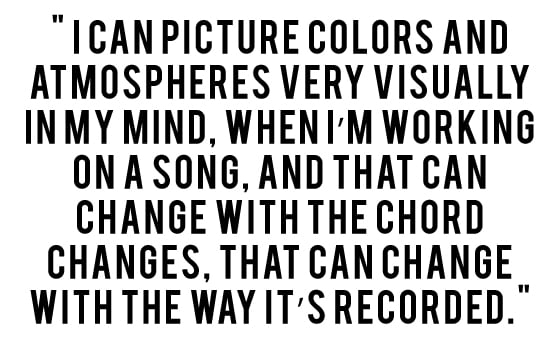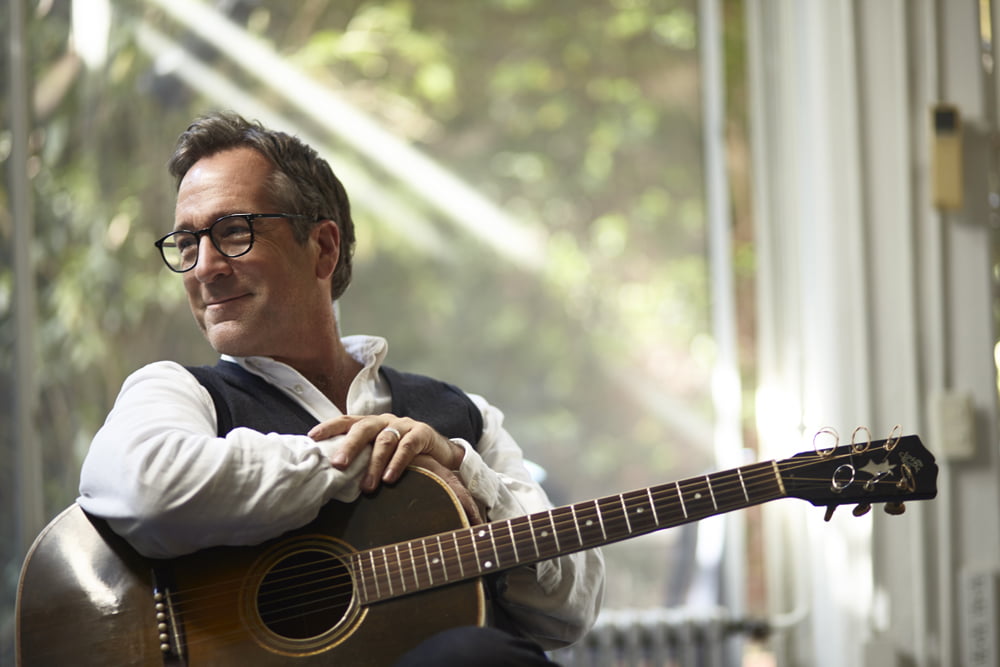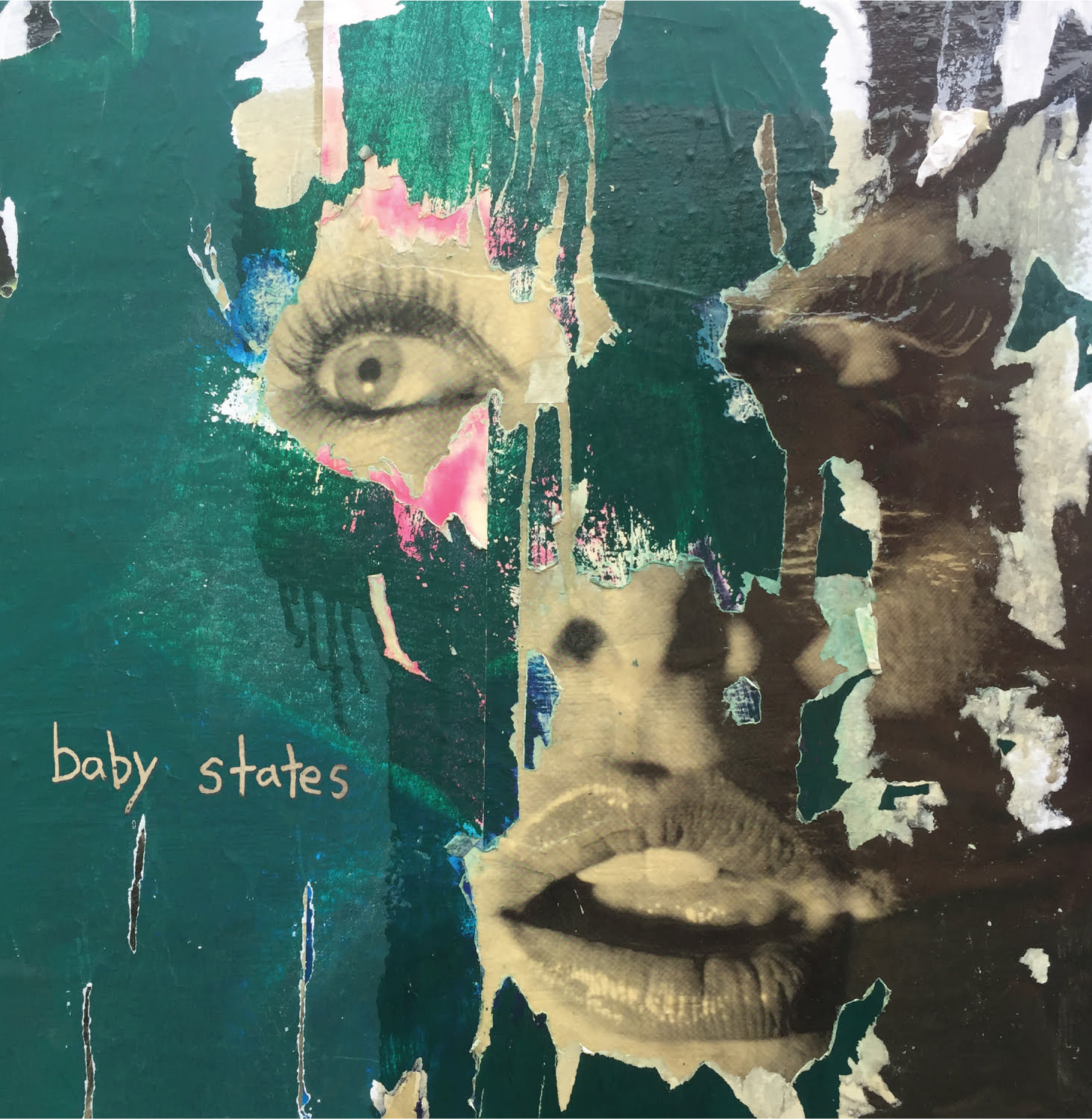It’s easy to look back on We All the Light, the second studio LP from River Whyless, and say it was all going to work out. After all, hindsight tends to offer that perspective so necessary to see the story for all its parts — as opposed to being stuck in the middle with the outcome still unknown. But when the band, which includes Ryan O’Keefe (guitar, vocals), Halli Anderson (violin, vocals), Daniel Shearin (bass, vocals bass), and Alex McWalters (drums), began working on that project in 2015, the narrative hadn’t yet reached its requisite end. Something wasn’t working, something wasn’t right.
Finishing We All the Light became a journey none fully anticipated. For starters, there was the issue of songwriters. In addition to O’Keefe and Anderson, Shearin brought an eclectic ear to the table, when he joined the band in 2012. But trying to make space for everyone’s voice seemed to be creating further chaos rather than helping refine an album. River Whyless eventually went back to basics, using “folk” as a starting point from which they could explore the many and abundant instances of that style around the world. Their new songs sought out folk in new languages. The touches they integrated are subtle, such as on “All Day All Night,” which finds a Malian influence from the very beginning between rhythmic chanting and a strong, desert guitar riff reminiscent of the band Tinariwen.
But it’s not all entirely new explorations. River Whyless re-recorded “Life Crisis,” which first appeared on their 2015 self-titled EP. Not much has changed about the song, but it’s a gentle, insistent reminder that the band, as a whole, is greater than the sum of its parts, even while figuring out how all those parts work together took a moment. With We All the Light, the band has made the connection from U.S. to world folk, the resulting sounds as shimmering as they are honest, that probity rippling forth from the band’s earlier music.
This was such a moment of experimentation for the band, which can be a huge risk. How did you build up the bravery to go there creatively?
Alex McWalters: We didn’t really have a choice, in a lot of ways. We’d been working on this for a couple of years, at least in thinking about it and trying to get the ball rolling. We struggled a lot with trying to figure out how to incorporate everybody’s ideas and voices. The end result was kind of the only way that we could make it work and have everybody agree on what felt good and sounded good. It was a long process. I think we reached a breaking point, maybe a year ago, where we thought maybe it would never happen because we kept hitting a wall, and then we let go. It was almost like we gave up, in a positive way, and that opened the door to something new. I don’t know if it was a conscious decision to experiment as much as it was the only way forward.
Daniel Shearin: I think we were doing what felt like the right choice. In a way, if somebody is expecting one thing from us, we may have disappointed them with this record, and I guess it could be brave to not worry about that or to think outside of that. I wouldn’t call it bravery, necessarily, as much as doing what we like the best.
The band has been transparent about the struggles involved with reaching this new creative space where collaboration fuels the music. Why keep pushing to work together?
AM: I think because we really believed that it would work, and it had worked in the past. I mean, there are always moments amongst that struggle where you’re like, "Yeah, this does work. There is still something here." It was a matter of pushing through that. Again, we didn’t know we would push through it, but we believed it could work. That was the thing that kept us going.

It’s always so funny, when you’re in the thick of it, you can’t see that narrative arc and the ending, but now that you’re on the other side, you can look back and say "Yes, we were able to push through."
AM: That’s very true. And, in hindsight, it’s definitely easier to say, "Oh yeah, we believed it! It’s simple. Obviously, it was going to work eventually," which was not the way we felt about the process. I do think we’re somewhat gluttons for punishment … me, especially. I almost don’t want it to be too easy, because it doesn’t feel as gratifying, which is a disturbed way of doing things, at times. That’s just kind of how I operate. I like to make it difficult for myself sometimes.
Dan, you’ve been with the band since 2012, so it’s unfair to still pin you as the new member, but how did you find the space to contribute your voice as a songwriter?
DS: We recorded the EP, and that was my first step. We had been writing music together for a couple years, at that point — nothing that had been released — but we had been writing some of Ryan’s songs and some of Halli’s songs. We took a song of mine [“Miles of Skyline”] that had already been recorded and revamped it and changed it a good bit. It felt like a really nice intro because the song had already been released and there was no pressure to make it the essential version. After that, we went back and started working on a group of songs that Ryan had been working on, and they weren’t quite hitting home the way we wanted them to, so we decided to open the floor, and everybody started throwing in ideas, bits and pieces of songs they’d done, or a whole song they’d done.
Alex, how did you challenge yourself on this album?
AM: For almost as long as we’ve been playing together, I’ve been challenged more by my bandmates than I have challenged myself, at least when it comes to playing percussion for this band, if that makes any sense. A lot of times — I don’t ever seem to learn this lesson, but I guess it’s all part of the process — I’ll spend a lot of time by myself working on something, like maybe it’s a particular groove or some idea I have that I want to incorporate into the music, and I’ll present that idea to the band and they’ll very quickly say, "No, it’s not working," or "No, we don’t like that," or "No, that’s not right." That kind of sucks, but usually it’s for the best. I’m usually challenged to step outside of my own head, and step outside of my comfort zone, a lot of times, and not play what comes easiest for me and do what fits best. That’s always been the biggest challenge for me is having to swallow that first moment of "Oh, it’s not working" or "Oh, you don’t like this," and having to go from there.
It’s one of the hardest things to hear as a creative individual. But it forces you to really push yourself.
AM: Totally, and I think that’s really the story of this record is all of us having to do that and to a new level. Just because we finally got to a point where we were able to be totally open and honest with each other, and just put it out there. Once we got over the initial hurdle and discomfort and tension of that, that’s kind of where it all changed. That’s where this particular group of songs started. We were all looking at each other like, "I hate you and you hate me," and now we can get over that and work together instead of trying to fight each other.
Music born out of — not animosity — but a certain tension.
AM: Tension and communication. Getting to a point where we’re able to say that to each other and it doesn’t ruin the relationship. That takes a long time to get to that point.
It’s like a marriage in a way, there’s a safe space to be critical and open and honest.
AM: It is, and that kind of reverts back to your other question about what kept us committed to it, and I think that’s part of what it feels like. You’re in this family, you’re in this marriage, and you have to give it everything you can before you say, "No, it’s not working." That’s how I feel about it anyway. It’s a commitment.
It speaks to your personality; you don’t seem to like taking the easy way out.
AM: Yeah, for better or worse.
Well, those are the vows.
AM: Yep, exactly!
We All the Light draws connections between the American folk tradition and world folk traditions. I love the Mali sounds and structures running through “All Day All Night.” Have you long been a fan of African music?
DS: Something about African music has always connected with me. I think it’s a lot of the rhythms that they use in different parts of Africa. I see myself more like a drummer, honestly, than anything else, which is funny because I don’t play drums at all, but I connect with drums in a very real way. When I listen to music, I’m usually listening to the bass and drums and everything fills in around it. If I really like the song, it’ll take me a few listens to understand what’s going on with the song. In terms of the world music, it’s something … the textures of it and the percussive elements of it and the rhythms of it always really called to me. Something about the soul of it feels really good. It’s true that I’ve listened to it for a long time, but I think everybody else [in River Whyless] has found it on their own terms. It’s something I think I’ve been listening to a little bit longer.

Where do you draw inspiration from? Is it a verbal or a visual thing?
DS: It is a visual thing for me. That’s funny: No one’s prefaced the question that way but, yeah, it’s very visual. And I don’t mean images so much as colors. I can picture colors and atmospheres very visually in my mind, when I’m working on a song, and that can change with the chord changes, that can change with the way it’s recorded. The songwriting is more impressionistic, I guess. I don’t always do this, but I rarely go into writing a song with an idea of what I want the song to be about. It’s more like I kind of accidentally start writing a song and then mumble jumble a bunch of words that don’t really make sense, and then piece together bits of the song after that, and then think about what it means to be halfway through writing it or something. It usually takes me finishing a song before I really understand what it is or what it means.
Have you heard of synesthesia, where people see colors when they listen to music? Not to say you have this.
DS: I haven’t really read about that, but I’ve heard people talk about it. To me, that seems like something you wouldn’t even say — it just feels so obvious. But maybe it’s not obvious. Maybe people experience this to a way more drastic degree than I do, but to me it’s like, "Well, yeah, of course … how else do you hear music without seeing all these colors flashing around?" It’s not like I’m tripping — it’s subtle. I’m not going through a crazy experience, when I listen to music. If I close my eyes, I can picture it all and these weird blobs and flashes and stuff. It could be that thing, but I haven’t read enough about it to know that’s exactly what it is. Listening to classical music and African music, they really tickle that more than anything else.
It’d be interesting if you tried to paint what you saw as you listened to a song.
DS: I could do it, if I were a good painter. I’m not much of one. If I had the skills to paint, I could literally paint you a moment of a song.
I’m curious about the album’s title. Why drop the verb in the phrase?
AM: In the first song of the record and the last song, there’s that line “We all deserve the light.” It’s a line Ryan wrote and we liked how that line resonated, in general. Something about taking out that word — which is how I view it, just taking out that verb “deserve” — it was opening up to be more inclusive and speaking to this idea of equality, both within the band and without. The biggest thing within the band was finding this new sense of collaboration and equality and having all of our voices heard, which was totally new to us and really exciting. And just the idea “We all the light,” which to me is really saying, “We are all the light,” and trying really hard to put that idea into practice, seeing everybody as equal and being as inclusive as you can.
That message, now more than ever, needs to be spread … and spread far and wide.
AM: That’s what we’re trying to get. Trying to have a little, subtle response to some of the stuff that’s been going on recently and trying to counter that in some way. It’s good to make an effort to say something. I think it’s a waste not to.
For more on the intersection of folk and world music, read our Squared Roots interview with Ryley Walker.
